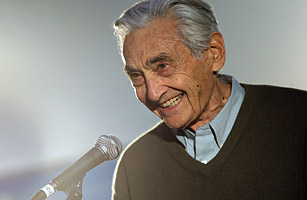
Historian Howard Zinn's remarkable work, including his most famous book, A People's History of the United States, is summarized best in his own words. His primary concern, he once explained, was "the countless small actions of unknown people" that lie at the roots of the great moments of history — a record that would be profoundly misleading, and seriously disempowering, if torn from such roots. Howard, who died Jan. 27 at 87, was devoted to the empowerment of these unknowns.
That was true from the days when, while teaching in the 1950s and '60s at Atlanta's historically black Spelman College, he participated in the early, dangerous days of the civil rights movement — and lost his job as a reward.
Wherever there was a struggle for peace and justice, Howard was on the front lines: inspiring in his integrity, engagement, eloquence and humor, in his dedication to nonviolence and in his sheer decency. He changed the conscience of a generation. It's hard to imagine how many young people's lives were touched by his work and his life. Both leave a permanent stamp on how history is understood and the conception of how a decent and honorable life should be lived.
—Noam Chomsky
Chomsky is a professor emeritus of linguistics at MIT
This text originally appeared in the Feb. 22, 2010 issue of TIME Magazine.